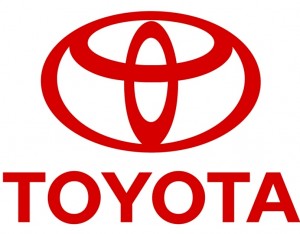Toyota has asked a federal court in California to dismiss a collection of lawsuits stemming from the maker’s problems with runaway cars and trucks, claiming the plaintiffs have shown no “actual defect.”
The request, if approved, would impact scores of lawsuits consolidated, earlier this year, by the U.S. District Court of Southern California. If the court allows the action to continue, however, virtually anyone with a Toyota vehicle equipped with an electronic throttle control system, or ETCS, would be able to join in.
The lawsuits were filed by owners who have not only experienced what they claim was sudden, or unintended, acceleration – in which vehicles reportedly race out of control – but also those who contend that the problem and the recalls Toyota has ordered over the last year have reduced the value of their Toyota vehicles.
For its part, the maker claims it has identified and resolved the unintended acceleration issue with a pair of recalls – one to deal with loose carpets, the other due to potentially sticky accelerators – and that the plaintiffs have failed to demonstrate additional problems. It has been widely speculated by Toyota’s critics that the maker’s ETCS technology is vulnerable to as yet-unidentified electrical problems. But Toyota has contended that no such gremlins exist.
“Toyota looks forward to the time when plaintiffs will finally be compelled to specify exactly what is defective in Toyota’s Electronic Throttle Control System,” said Toyota attorney Cari K. Dawson. “More than a year after filing their first complaint, plaintiffs have not identified a defect and are grasping at straws to make their case.”
In its court filing, the automaker described as “sheer speculation” claims that Toyota owners will see the value of their vehicles decline because of “some loss legally traceable to a defect that they have never experienced.”
While it will eventually be the courts that decide who experienced what, if any, loss, there’s no question that Toyota has had a troubling year. Since October 2009 the maker has recalled about 11 million vehicles worldwide, approximately 8 million of them to deal with the two unintended acceleration problems so far identified.
The National Highway Traffic Safety Administration has harshly criticized the maker – and leveled a record $16.4 million fine for failing to act on the sticky accelerator problem with reasonable haste.
The maker has also recalled vehicles for a variety of other problems, ranging from defective brakes on the Prius hybrid to excess corrosion on minivans and pickups. Late last month it called back another 1.5 million vehicles, worldwide, for fuel pump and brake line problems. (Click Here for details.)
But the damage in the court of public sentiment has been far more severe, at least so far. The maker’s sales have lagged the rest of the U.S. new car market, despite Toyota’s record incentives. Globally, the Japanese manufacturer has had to slash its sales forecast for the 2010 Fiscal Year from 10 million to less than 7.5 million, though global economics and other matters have played a factor, as well.
The problems have also had a sharp impact on earnings. (Click Here for more.) Arch-rival Volkswagen has reported higher earnings for the first nine months than Toyota expects to report for the full year, with the recalls and lawsuits threatening to impact earnings in future years.
(Toyota accused of buying back vehicles to keep defects secret. Click Here for that report.)

